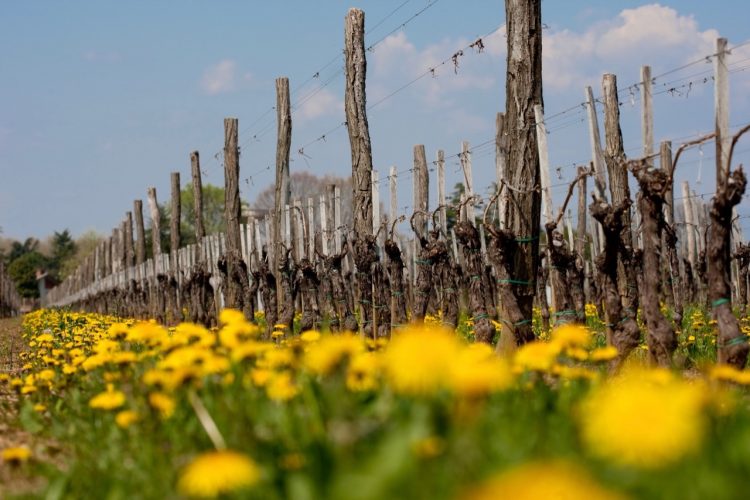Sustainable Wine
Trying to live a sustainable lifestyle? Drinking wine may help.
Words: Alison Christ
Photos: Corresponding Winemakers
Living a sustainable lifestyle doesn’t just mean doing sustainable things; it means using and supporting brands of every kind that are sustainable enterprises. So if you have the same concern Monica and I do about the planet and the longevity of earth’s animals, including humans, then you might be wondering how you can make a difference in your everyday life. Besides eliminating plastic and cutting down on beef (and fish), what can we do and still enjoy the pleasantries the world has to offer? Good question. How about drinking sustainably? Or, more accurately, drink wine that supports a sustainable now and future.
I’ve been interested in the bio-farming wine industry for a long time. It started when I visited a biodynamic property in California in the early 2000s. That visit created a fascination with how animals and insects are used to promote a healthy ecosystem. My interest in biodynamics continued to grow after realizing that we need to help save the planet from certain self-ruin. It’s impossible to do it alone. We have to do it together. Wine is a glorious thing; if it can help us sustain the diverse ecosystem we have before us, what more can we ask for?
I could write about the nuances of sustainability, organic, biodynamic farming and natural wines for days and days. Instead, I asked several winemakers from around the world a simple question…
What’s one awesome thing you are doing in your winery/vineyard to promote a sustainable planet?
So let’s hear from ten of my favourite producers about how they are making a positive and long-lasting impact on the only planet we have.
Alex Dale from Radford Dale in South Africa does some exciting things. They place net bags full of dog fur around the saplings (baby vines) to protect them from deer, rather than shooting or poisoning the deer. Dales says, “This ensures the vines can live and grow. If they are munched on, they take two years to re-grow. When the bucks smell the dogs, they run away.” In the winery, they use enzymatic natural cleaning products, so they don’t have to use any toxic cleaning chemicals. “Given that winemaking is all about cleaning and using tons of water, that’s a lot of chemicals we are not using. And for good measure, we recycle every single drop of water in the cellar, which we pump up to a set of reed bed ponds. It takes the used water in one end and gives us purified water out the other end.” They also provide wooden posts to attract Raptors (think Jurassic Park – this is Africa) who eat the mice and other pests, promoting a healthy life cycle without using poisons.
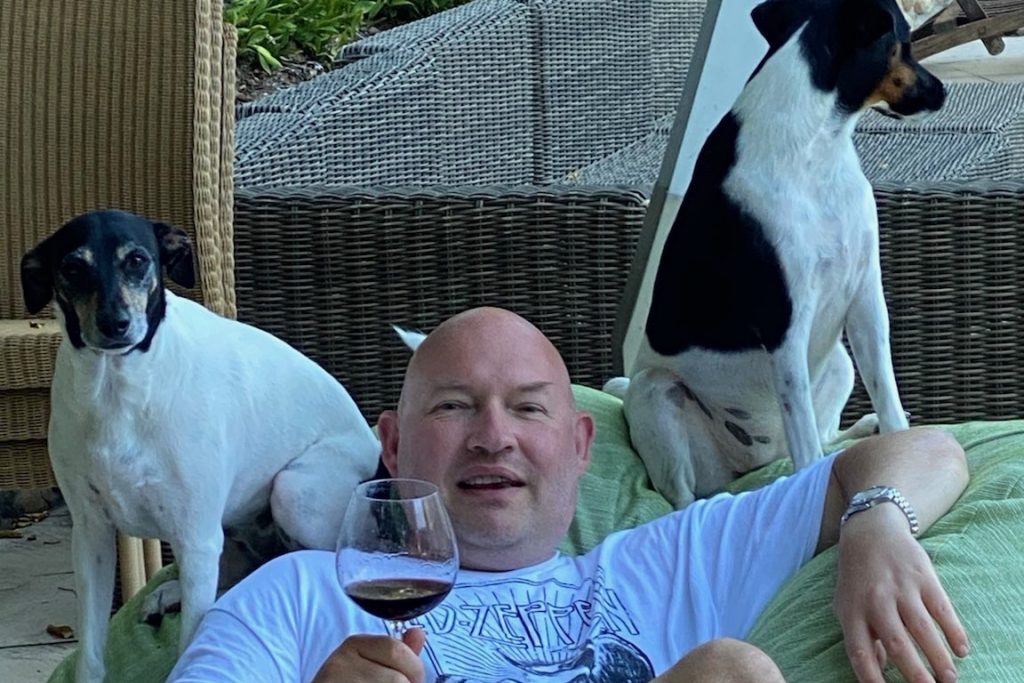
Mattia Scarbolo from Scarbolo Winery in Friuli, Italy, says, “Bees and worms come first!” “When the bees pollinate, we ghost the vineyard, meaning no work is done at all in the vineyard, and no humans enter the vineyard. We do this for two reasons; the pollinating bees foster richer biodiversity, which benefits the soil and hence vineyard health (and aids in carbon reduction for the planet). Secondly, by giving our little friends the stage, they pollinate more easily, populate the area if they deem it safe, and hence we support bees’ repopulation. We also planted “pockets” of aromatic herbs to attract and help bees’ work.”
“When it rains at Scarbolo, we never go into the vineyards – especially with tractors or equipment, because the softer, moist soil compacts at dangerous levels, inhibiting the worms’ and other insect’s work, who are responsible for transforming organic matter.”
“Finally, Scarbolo focuses more and more on large formats for the more expensive wines. The wine/glass ratio in the 750ml bottles is quite unsustainable.” Who doesn’t like to drink out of magnums? If you are going to drink two bottles of wine, best to make it a magnum!
Kai Schubert of Schubert Wines in Wairarapa, New Zealand, says, “not only are we sustainable, but we are also certified organic. A practical example of why this is better is that we do not use herbicides like Glyphosate. For years (when I was still studying oenology), it was promoted as absolutely harmless. Then they found out years later that it might cause cancer. Now they found out that there are residuals in the vines and in the wine as well for people if used for a while. So not only is this herbicide harmful to the operator in the vineyard being around this poison and for the final customer drinking those wines. Being organic is working with nature and not against it; not using all this poisonous stuff which is obviously not good for the planet, nor for mankind… (but it saves money). Everyone with a brain should ask, why is it still being used? Well…. it saves Big Money.”
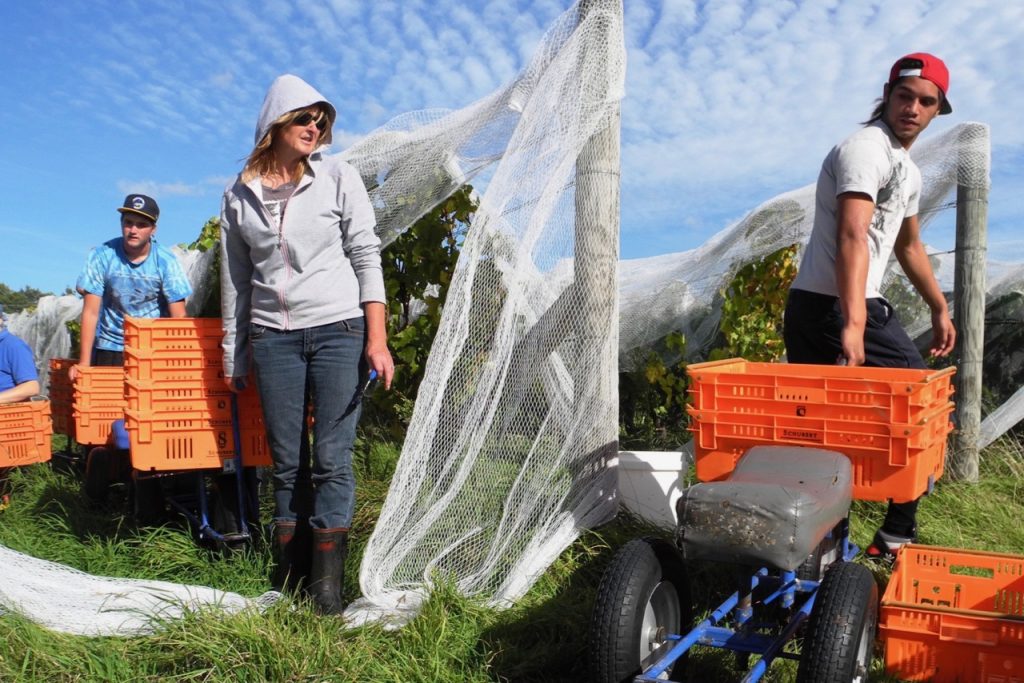
Lorenzo Scavino from Azelia Winery in Piedmont, Italy, says, “We at Azelia have always been striving to respect our environment. Since the foundation of our winery in 1920, we have always been organic. It is not a marketing tool or a trend for us. It is just the only natural way to work in our land. We are extremely proud of the incredible heritage we received, thanks to the arduous work of our great-great-grandfathers. We strongly believe we have to preserve it in the best way possible for our future generations.”
“We use new ecological corks, especially for our everyday drinking wines. These corks, which are considered ‘green,’ are made from 100% sugar cane. This means that both the production and the use of these corks is extremely efficient for our environment. These corks can be thrown in the organic waste as they decompose completely.” A sidebar here from me (Alison, that is) the cork situation in South East Asia really bothers me. There are so many amazing things we can do with corks. Instead, we throw them into a plastic bag to be buried in the earth forever and ever. I am working on a solution, so hold tight! In the meantime, save all of your corks. We will find a way to reuse them here in Kuala Lumpur. OK, back to Lorenzo!
“At Azelia, we also care a lot about our packaging. We have always been using lightweight glass for two reasons. First, in order to consume smaller glass quantities and second to have lighter bottles and cases so to be able to have a small impact during the transport. For the same reason, we use light cardboard boxes, a very climate-efficient solution to help reduce transport emissions.”
It goes without saying the care Azelia takes in the vineyard. Lorenzo also tells me, “no vine is replaced until it dies; an important choice considering that the older the vine, the less it produces, but decisive for the quality of the grapes and to respect the natural lifespan of our plants. Part of the nowadays’ vines have been replanted by Luigi’s father, Lorenzo, in the 1940s, and they are a unique legacy for us.”
Azelia has always limited phytosanitary treatments (plant treatments) of any kind as much as possible, using exclusively natural products like copper and sulphur only when strictly necessary. They do not use chemical pesticides, but only natural pheromones, which prevent the mating of harmful insects (I will explain this later on).
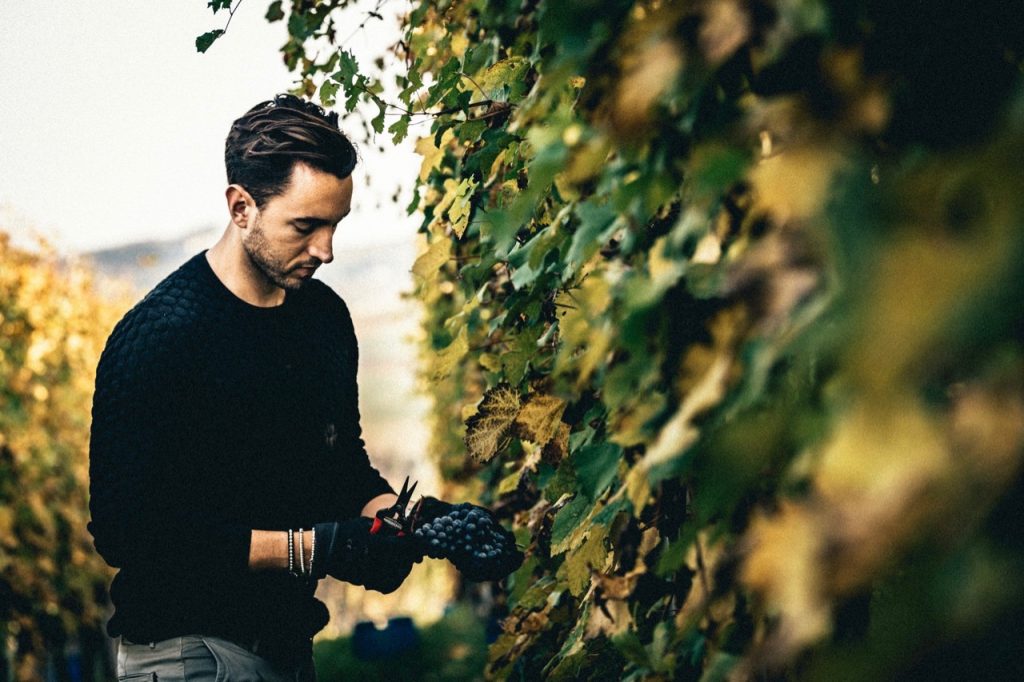
Marc Barriot from Clot de L’Origine in Maury, France, makes natural wines, which are organic, biodynamic, and vegan. Believe it or not, many animal products can be incorporated into the winemaking process, like chicken eggs and fish eggs used for filtration purposes. Marc’s vineyard is a living organism, and everything lives and works together. Marc has planted vegetation in the soil to increase natural organic matter, which is pertinent for a healthy vineyard and helps absorb carbon from the atmosphere. He has also planted oak trees around the vineyards for the birds to flourish. Birds help to pollinate and also keep bad bugs away. He uses very old machinery to limit industrial technology and ploughs the vineyard by horse. Marc makes his own teas and plant extracts to naturally treat the vines. When you drink Clot de L’Origine wines, you are basically drinking fermented grapes and nothing else, no chemicals, no added yeast and extremely limited use of sulphur, if any at all. You definitely feel the difference between drinking his wines versus drinking commercial wines, especially the next day!
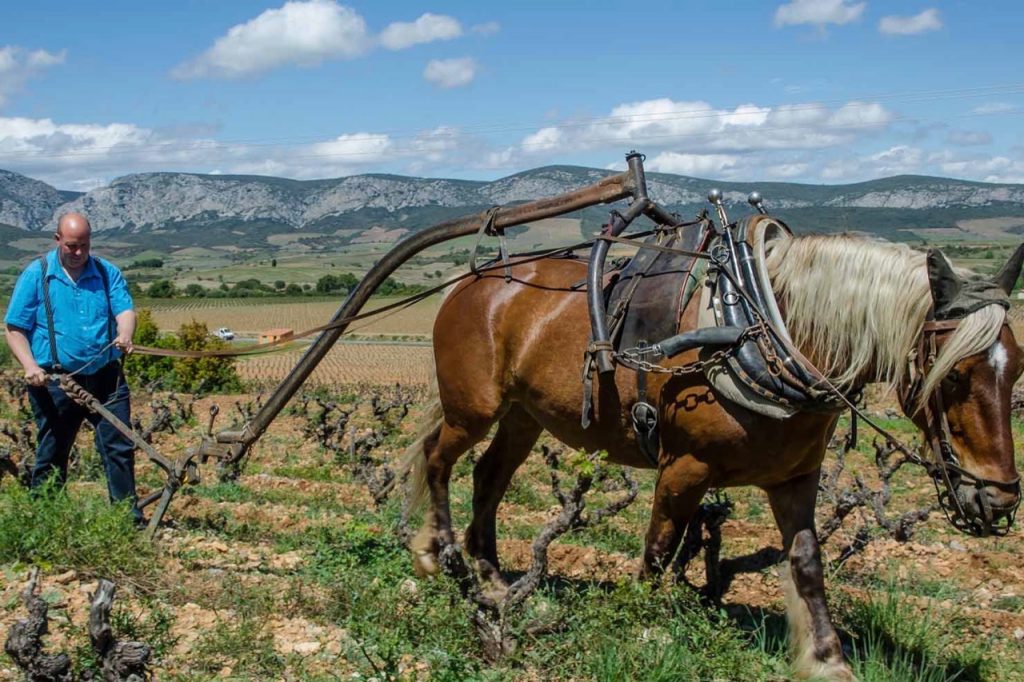
Wayne Ahrens and Suzi Hiller from Small Fry Wines in the Barossa Valley, Australia, say, “Our farming is all about sustainability. Having witnessed the degradation of land due to poor farming practices throughout our lives, there was no way we wanted to continue that path on our own farm. Farming biodynamically allows us productivity while restoring the integrity of the land. Since buying our very degraded farm and converting it to biodynamic fourteen years ago, we have seen real improvement in soil health, fertility, water holding capacity and erosion. Biodiversity has improved, and native wildlife and grasses returned. This has resulted in the farm actually becoming profitable, which it wasn’t before. If we are going to hand this farm onto the next generation, it needs to be sustainable over the long term.”
Wayne continues to explain the impact they are making, “If we increase our soil organic matter, i.e. soil carbon levels by 5% in the top 150mm, we have taken 32,000 tonnes of CO2 out of the atmosphere. Our aim is to achieve double that, but the above is around what we have done so far. Regenerative agriculture, which includes biodynamic farming, is one of the biggest opportunities to address CO2 levels in the atmosphere.”
Luca Speri of Speri Winery in Veneto, Italy, says, “Besides being organic-certified, we’re also in the process of receiving a sustainable certification. That will certify the 100% sustainability of the winery in every aspect, not just the vineyards/production but also the economic aspects, respect of the resources and employees, and the carbon footprint.”
The winery does not use synthetic products and low sulphite content; they compost all residuals from pruning and vinification. Sexual confusion has been implemented since 2000. We all may feel sexually confused at some point in our lives but what does this have to do with winemaking? Another good question. Sexual confusion in the vineyard eliminates the need for insecticide. Anything ending in “cide” can’t be good!
Moths (more specifically the caterpillar before the moth) in the vineyard are pests, as they like to nibble away on the vines. To avoid this, winemakers hang diffusers containing natural insect pheromones, which confuse the male moths. They cannot find and mate with the female, and in return, the female cannot lay eggs. Hence the caterpillar that eats the leaves is not born.
Master Sommelier and winemaker Franck Massard told me, “The latest really interesting process that I’ve found to reduce our carbon footprint and look after our planet significantly is biochar.” Biochar is the product of pyrolysis, a thermal process that allows us to upcycle our vine cuttings. Until now, most wood remaining from pruning was burnt directly in the vineyard, releasing greenhouse gases (mainly CO2) in the atmosphere, negatively impacting our environment. Biochar is an excellent method for carbon sequestration and has three interesting properties for our soil. It retains water, air and nutrients. By mixing it with our compost, it gets positively charged with nutrients and provides habitats for microorganisms.”
“In this form, it is durable and will last for over 1000 years in the soil. Its porous structure keeps precious moisture, a key element in our soil, as we are vulnerable to drought. By increasing the population of microorganisms, we increase our biodiversity. Our plants will be healthier and more resilient to fungal disease. In addition, scientific reports claim that the sustainable production of biochar can contribute to eliminating 12% of the total worldwide emission of greenhouse gases.”
Franck says, “This finding takes its roots back from farming culture between 450 BCE and 950 CE in the Amazon basin known as Terra Petra (black soil). I think it is time to use it again in our modern world.”
Our very own Malaysian born winemaker from Beso Negro in Colchagua Valley, Chile, is also producing biochar from his pruning waste and agrees that many benefits come with using biochar. Biochar is in itself a super sustainable by-product of our agricultural waste, and the vineyards look happier.
At Beso Negro they believe in the phrase less is more. “Being organic is no longer enough. We are constantly looking for ways to limit water and energy consumption and rely less on typical, even though organic, fertilizers, fungicides and pesticides. Water conservation is one of our main priorities. Like many other viticultural regions, water shortages have become a commonplace hurdle here in the Colchagua Valley. We address this issue in every aspect of the winemaking process, from plant to bottle.”
“In the vineyard, we use varieties and rootstock that are drought resistant, and we don’t use cover crops (that also need water). Instead, we allow beneficial and hardy local vegetation to form our ground cover. We also incorporate the biochar into our compost for further moisture retention. Wineries use a lot of water for cleaning purposes. To limit our use of water, we have turned to steam. The use of high-pressure steam to clean barrels, machinery and tanks has also brought down our water consumption. We also use solar energy to power our irrigation”.
“Finally, at Beso, we try not to use anything our plants don’t “really need.” For example, we have not used any outside fertilizers (compost essentially) for the last eight years. Our vineyard has reached a fine balance where it’s been providing its own nitrogen needs. We also try to be preventative rather than reactive when applying fungicides and pesticides: identifying what is potentially dangerous, so we plan our year to create adverse conditions for these threats. Beneficial insects and plants, and predatory fungus and bacteria form our arsenal in our battle against the endless waves of pests and fungal plagues.”
Maxime Bazart, the export director from Pares Balta, Penedes, Spain and Dominio Romano, Ribera del Duero, Spain, says “wine is crafted in the winery, but the real making of wine happens in the vineyard where the most influential factors are weather and the climate. Over the past 15 years, we have noticed that the pace of ripening of the grapes has changed. Now we harvest about 15 days before we used to 20 years ago. Therefore, our efforts are focused on mitigating the effects of climate change which we do both in the winery and in the vineyard.”
“We promote sustainability through aspects such as biodynamic agriculture, which in addition to organic agriculture includes, the use of cover crops to promote air and terrestrial biodiversity, increases CO2 uptake and makes it easier for rain to penetrate the soil which increases its water storage capacity and prevents soil erosion and degradation.”
“We have a diversity of crops for the creation and maintenance of ecotones. At Parés Balta, we have orchards of olive trees, almond trees and also some grain. Interaction of animals in the maintenance of the vineyards such as sheep that help us regulate plant cover and at the same time provide us with compost which enriches the soil. In the winery, we have reduced the weight of our bottles, reducing our ecological footprint. For us, our job isn’t just to make wine. It is our responsibility to make wine whilst taking care of the planet.”
There is a common theme here among sustainable winemakers, and that’s reducing carbon through healthy soils. Monica and I were really moved by the film ‘Kiss the Ground’ with Woody Harrelson about how farming is turning our planets soil into dirt, say it out loud… soil into dirt. While watching that film, I thought several times about how winemaking the right way can positively impact our planet. I hope you will consider exclusively drink wine that fits into this category.
Are you wondering how to tell if a wine is sustainable? Several organizations certify wineries, and usually, you can find a little symbol somewhere on the back label of the bottles. This is not always the case as certifications are costly and involve inviting the “police” over for a drink, so some wineries go only by word of mouth. I am happy to assist if you’re curious about a brand’s stance on sustainability.
Sustainable Wine Available in KL
If you need help finding sustainable wines of excellent quality and good value for your pocket, I have made a list of some from the above-mentioned producers, which are available here in Kuala Lumpur.
Radford Dale “Winery of Good Hope” Bush Vine Chenin Blanc, Stellenbosch, South Africa, 2018 RM95
Radford Dale “Renaissance” Chenin Blanc, Stellenbosch, South Africa, 2016 RM185
Scarbolo “Sunset” Chardonnay, Friuli, Italy, 2015 RM125
Scarbolo “Cabernet” Cabernet Franc & Cabernet Sauvignon, Friuli, Italy 2017 RM110
Schubert “S” Sauvignon Blanc, Wairarapa, New Zealand, 2019 RM115
Schubert “S” Pinot Noir, Wairarapa, New Zealand, 2019 RM130
Azelia Bricco dell ‘Oriolo’, Dolcetto d’Alba, Piedmont, Italy 2017, RM120
Clot de L’Origine “Le P’tit Barriot” Syrah Blanc, Côtes du Roussillon, France, 2019 RM150
Clot de L’Origine “Soif de Plaisir” Carignan, Syrah, Grenache, Côtes du Roussillon, France, 2017 RM165
Small Fry Eden Valley (Dry) Riesling, Barossa Valley, Australia, 2019 RM125
Speri Valpolicella Ripasso Classico Superiore, Veneto, Italy, 2018 RM150
Speri Amarone Della Valpolicella Classico `Sant’Urbano,’ Veneto, Italy, 2015 RM325
Franck Massard “El Mago Blanca” Terra Alta, Spain, 2016 RM135
Franck Massard “Huellas” Garnacha, Carinena, Priorat, Spain, 2014 RM225
Beso Negro “el Decadente” Carmenere, Petit Verdot, Petite Sirah, Colchagua Valley, Chile, 2016 (limited quantity arriving in July) RM195
Pares Balta “Cosmic” Xarel-lo & Sauvignon Blanc, Penedes, Spain, 2018 RM138
Dominio Romano Ribera Del Duero, Spain, 2014 RM204
Reasons to drink sustainable wine: save the planet, save our soil, reduce carbon, support small family-owned wineries, wine feels good.
To order sustainable wine for the home with free delivery in KL WhatsApp Sommelier Alison Christ +6 018 236 3952. Special discounts if you mention The Yum List.
Find more on Malaysia’s wine scene here and stay up-to-date with the latest gourmet and travel recommendations for Malaysia here and here.

